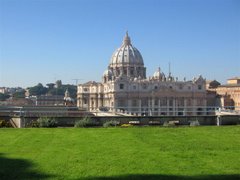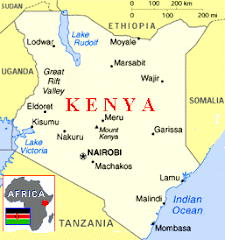
The Resurrection, 1596-1600Easter is always about death and resurrection – and down the centuries countless people must have applied its message to their own lives, their own circumstances.
I have a special and poignant memory of this. When my dear father was dying, it was the season of Lent. Daily, we gathered at the hospital to be with him. Initially, we hoped that he might recover from the respiratory infection that had felled him – and indeed on Laetare Sunday, traditionally the day when the church takes a break from Lenten penance and looks ahead to Easter and rejoices, he was a little better and was even able to sit up, and recognise us. But it was not to be: the illness was overwhelming and he died as Lent was drawing to its close. We had all been able to be with him, and although this was a dreadfully sad time – we all loved him dearly, he was quite simply the best of fathers – somehow there was a peace and unity among us all that robbed those days of any horror and gave them instead tranquillity and sanctity. I cannot and will not reveal the sacredness of such a time in detail – but will only say that praying around my father’s bed, and accompanying him all through that time was something that will always remain with me.
The funeral was in Holy Week. We chose the inscription for his grave: “The souls of the righteous are in the hands of God.” Good Friday had a deeper meaning than ever that year. The house was filled with cards and kind messages – we put these up along the mantle piece and shelves, tangible evidence of the kindness and thoughts of so many friends. The young grandchildren spent the day making two big beautiful cards, working with craft paper and tissue and crayons and paints quietly and busily in the kitchen.
On Easter Sunday, by common consent it was decreed that the message would be solely that of Resurrection: symbolically the cards of condolence were taken down (though not destroyed – they were cherished and re-read many times) and just the two big cards from the grandchildren dominated the main room with their huge golden cross, and a great Resurrection message, the glorious news of Easter. With banks of flowers – and the promise of the usual chocolate eggs for children, and a very special time of family togetherness, it was an Easter Sunday that is etched in my memory. We did all the things we had always done – church, of course, and a big Easter lunch, and then egg-rolling and a country walk. A loved face was missing, and always would be from now on, but the souls of the righteous are in the hands of God – and the Resurrection shows us the fullness of the truth of that promise.
That was all some years ago. Today, I’m approaching another Easter. My father’s grandchildren are all grown-up now, and there are great-grandchildren who will be romping around and hunting for eggs and having fun. And all of us in the middle generation are edging inexorably closer to our own long-term destiny. The message of death and resurrection still holds its hope and its joy and consolation – and as the years go by it all gets more important and more serious.
As a Catholic journalist, I have found the last part of this year’s Lent almost unbearable. It has been horrible to see the vile and unrelenting attacks on the pope and the church – unrelenting and inaccurate. What began as legitimate outrage at the discovery of yet more sexual abuse of children by clergy dating back several decades became an odyssey of bizarre denunciations of the one man who had done more than anyone to cleanse the church of such filth. Distortions and outright untruths began to dominate the media. I woke every morning to the grim thought, “What will it be today?”, and every day was a bit worse than I had expected.
One gives up treats in Lent – snacks, chocolate, sticky cakes. For the first time ever, I had no problem with that this year. I couldn’t eat, and everything felt weird. The saga is not over yet: as I write this, the climax of Holy Week and Easter approaches. I do not know what further attacks there will be on the pope, nor how the media will handle his usual Easter message.
Pope Benedict visits Britain in September – presumably there will be more attacks then. We will need the message of Lent and Easter to sustain us. As I learned years ago, Easter joy is not an easy thing – it isn’t superficial. It does not mean that everything just works out all right, that every problem is resolved. As my mother learned at my father’s death – as we all learned – the truth of the Christian faith and in particular its glorious Resurrection message is deep and true and real. But it does not guarantee a superficial beaming smile that coasts you through all that is to follow. It is much richer than that, much more important, much more complicated. Christ showed Thomas the wounds – and they were deep – in his hands and side.
The Easter message has sustained the church and all Christian people for two thousand years. It will reach its great fulfilment only when Christ comes again. Until that time, we all struggle on, sustained by its hope and transformed by the inner peace it offers. No one can take this from us, and the sneers of atheists, the attacks of the disaffected, the hatred of those who despise church teachings, the sufferings of those hurt by people within the church who have besmirched the latter’s good name...none of this can alter it, all can be transformed by it.
When I was a small child, Good Friday meant hot cross buns, fish at lunchtime, and a vaguely solemn air with grown-ups going to church. Easter meant chocolate galore and new dresses and a delicious cake and tea with the grandparents. Things are different now: but all the intervening years and all the years ahead are part of that process of maturity, often painful, that leads to the great and final culmination. As with the life of an individual, so with the life of the church – accompanied by Christ, walking in faith, towards the final climax which is all in God’s hands.
By: Joanna Bogle writes from London




No comments:
Post a Comment